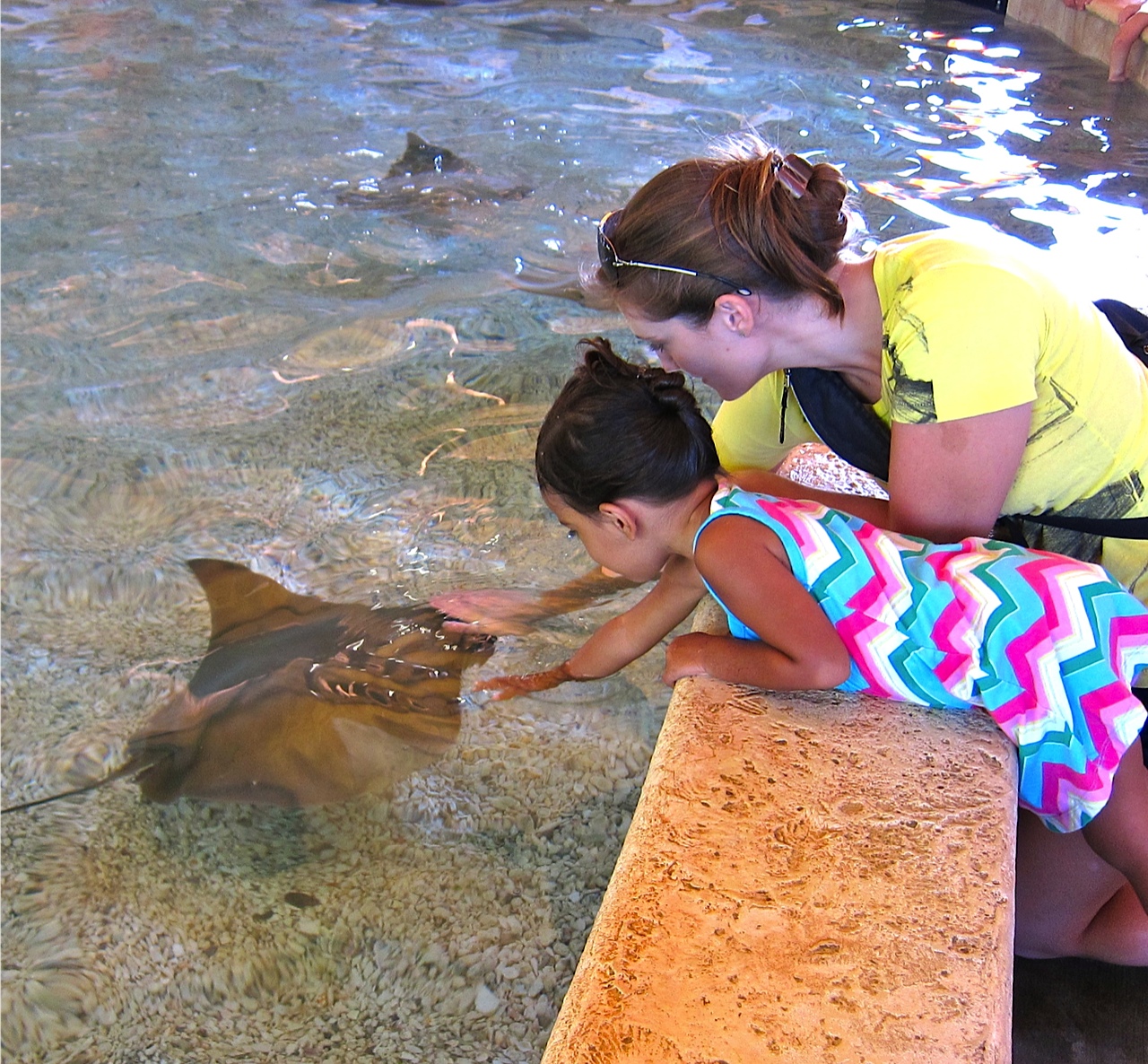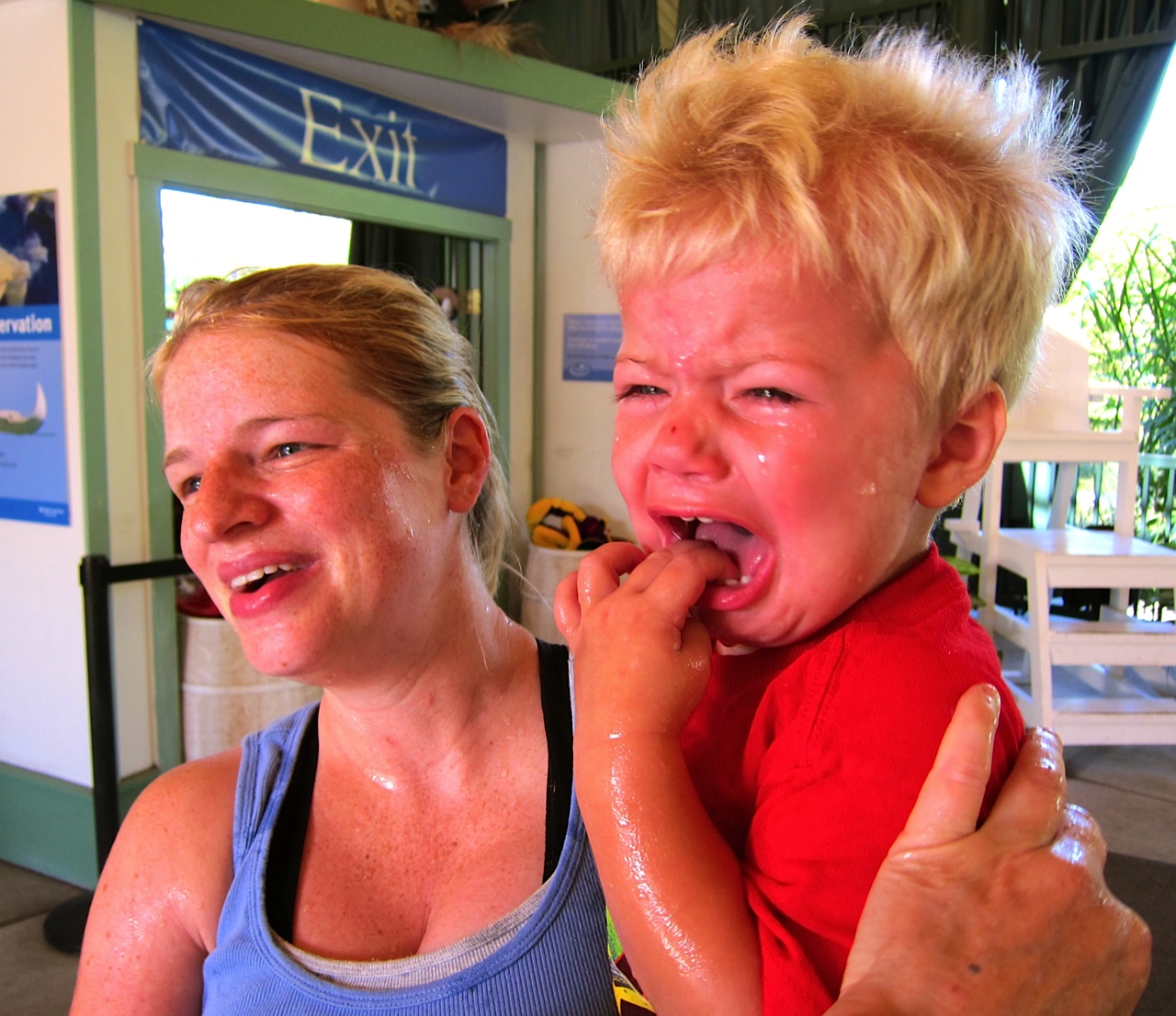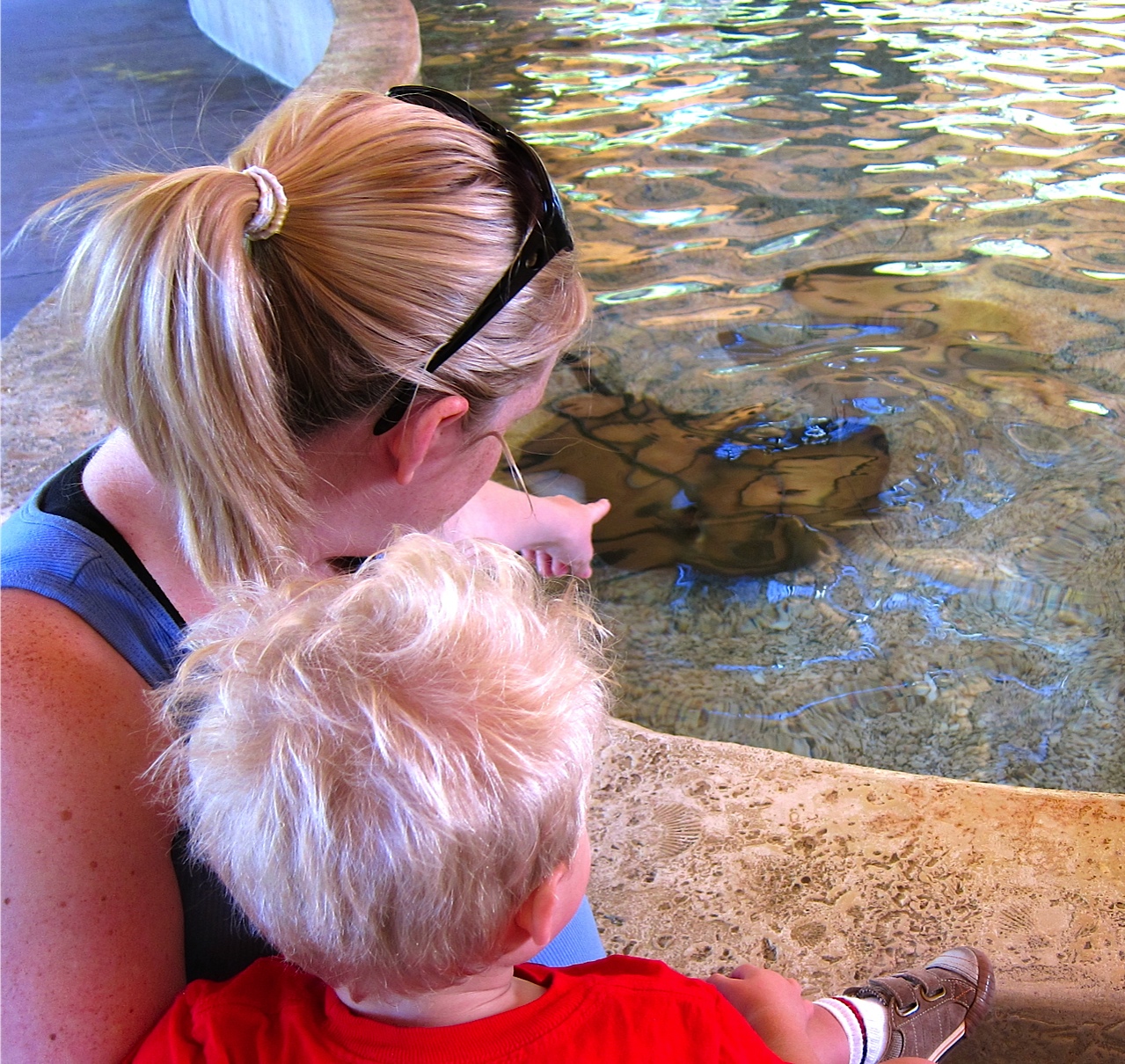
Three generations of family members wanted to learn about stingrays at the St. Louis Zoo. What they learned might surprise you. Grandma was taking pictures to record everyone’s first sighting of stingrays. Things were going great until one of the stingrays lifted his fin and coated little Ian with water. Ian was mortified and let out a blood curdling scream.  The mission seemed to be over.
The mission seemed to be over.
But a surprise followed. In spite of adversity, the mission continued. Ian learned he could be brave, stop crying, and listen to the lecture on stingrays. His mom learned more about Ian’s nature, and the grandma increased her knowledge about her daughter’s ability to be a good mother. What a well-educated group loving each other and learning new things about resilience, parenting, and stingrays.
 Success on a mission depends on loving to learn new things and being well educated or competently informed and knowledgeable. Education does not just mean having degrees or taking a formal course. Being educated means being engaged in life — like Ian and his mother. Tomas More a brave lawyer, statesman, and humanist, explains this concept, “To be educated, a person doesn’t have to know much or be informed, but he or she does have to have been exposed vulnerably to the transformative events of an engaged human life.”
Success on a mission depends on loving to learn new things and being well educated or competently informed and knowledgeable. Education does not just mean having degrees or taking a formal course. Being educated means being engaged in life — like Ian and his mother. Tomas More a brave lawyer, statesman, and humanist, explains this concept, “To be educated, a person doesn’t have to know much or be informed, but he or she does have to have been exposed vulnerably to the transformative events of an engaged human life.”
Being vulnerable and engaged might seem daunting and creating “too much information” to your already hurried life, but real time, in the moment, practical learning is essential to you and your mission’s successful growth.
You will know when more education is needed when you don’t know what to do on your mission. For instance, if you were lost in the jungle, you could shimmy up a tree to get a better view. This is called a helicopter or mountaintop view of the surroundings. If you get bogged down in some detail, step back. Shimmy up some mental tree and get a better view of this experience. Get the helicopter or mountaintop view that expands your knowledge and enables you to be competently informed of the situation.
For instance, a woman had no idea what to do with her life. She had too many choices. A friend recommended she read the book, What Color Is My Parachute by Richard Bolles. She completed all the exercises in the book and learned her mission was best suited in social work. Formal education and training was the key that opened every door to a successful mission.
Another person tried to get a degree and failed. His mission’s success has been due to his on the job training. A secondary gain to his mission experience has been to observe worker relationships and figure out how to promote cooperation in the company. This has been a hard path to take at times, but willingness to learn by experience has made his mission a success.
Learning can take a more introspective path. You can learn without formal education or on the job training. Some people open their minds to the “universe” or a higher power through prayer or meditation and this step enables them to learn something new about themselves and their mission. They love to ponder ideas and become well educated by being alone and connecting the ideas that come to them in moments of silence. An ophthalmologist told a story about how he wanted to help people who were blind. He had never received training on a particular type of surgery. In fact this surgery had never been invented. One day he sat in silence and prayed for a solution to a problem that caused people to be blind. He had a vision in his mind. The entire outline of the surgery appeared to him in thought. He tried it and it worked. Many people have been healed through this surgery that was revealed through a quiet, contemplative thought revelation.
So, to be successful, have a daily dose of learning something new – even if it means reading, walking, talking, running, observing, travelling, asking, inquiring, engaging, listening, smelling, tasting, feeling, seeing – using any or all the opportunities presented. Your whole life will be positively directed and guided when you are engaged in learning and become well educated on your mission journey.
Quote
“To be educated, a person doesn’t have to know much or be informed, but he or she does have to have been exposed vulnerably to the transformative events of an engaged human life.
- Thomas More, English Lawyer, Statesman, Humanist
Activity
Activity: The Bean Game
Materials: Enough dried beans for each member of the group to have one for each other member of the group. (e.g., if there are five participants, each person gets five beans.)
Time: Ten minutes per person in the group
Instruction:
1. Give each group member a bean for each member of the small group. (e.g., if there are five group members, each person gets five beans.)
2. Each person should think of one thing about her/himself that s/he thinks will be unique and has not happened to any one else in the group. Each person keeps this a secret until it is her/his turn to be "it".
3. Each person takes a turn and becomes "it". The "it" person tells one thing about her/himself that s/he thinks will be different for anyone else in the group. The idea is to tell a true story about yourself that you think may have only happened to you or is unique to you and no one else in the group.
4. After listening to this story, everyone else in the group is asked, “Has this ever happened to you?” The "it" person wins a bean from each group member who has not had this exact experience.
5. After telling the story, the group can ask the "it" person more details about this unique story. Even close friends and family members can play this game and will learn something new.
6. If the person doing this activity is not in a group, s/he can call a friend or family member and challenge them to tell a story about something they have done that they think people have rarely if ever experienced. You will be surprised at the stories people will tell you. You will learn something -- a lot.
7. At then end of the game, each person should count the number of beans they have and discuss what the distribution means. Who has the most? Why? Who has the least? Why? Are they evenly distributed? What does this mean?
Note: The primary gain of this exercise is not to "win" beans, but to learn from and bond with others.
Example:
A group of five met. The first person explained that she had gone to the Olympics as a swimmer. None of the other people had experienced being an Olympic athlete. Therefore no beans were exchanged. The woman went on to tell about her experience.
The second person told about going to Africa to help teach African children how to use computers. He explained a program for taking old computers to a school in East Africa. From this conversation, he was able to acquire some computers. No one else in the group had done this kind of work so no beans were exchanged.
The third person told about adopting four children. No one else in the group had adopted, so no beans were exchanged.
These are just a few of the experiences that people have had doing this activity. This is a great way to open a program and to bond with people in a group – even those who are old friends. The key is to let people know that the story told must be true and should be something that the participant thinks will have been done by another group member. This exercise leaves group members with a new appreciation for life’s potential.
Affirmation
I love learning, so I can .... We'd like to hear your story about being well educated. Write your story below.
- « Previous lesson: A Good Confidante: I know when to be quiet
- » Next lesson: Mature: I am responsible, accountable, and conscientious